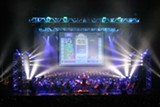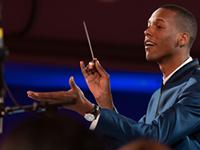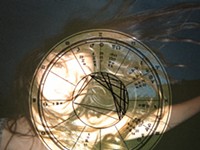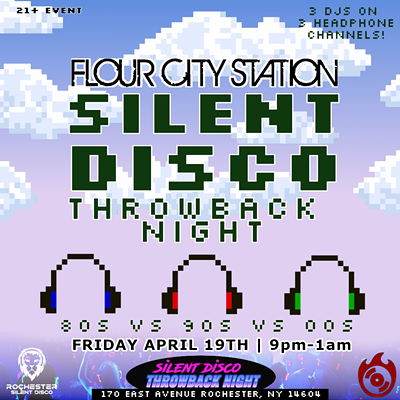[
{
"name": "500x250 Ad",
"insertPoint": "5",
"component": "15667920",
"parentWrapperClass": "",
"requiredCountToDisplay": "1"
}
]
There's a special connection that video gamers have to the music used in the games they play. A lot of it is iconic, recognizable by many who've never touched a console because it has worked its way into popular culture: the "Super Mario Bros." theme, for instance, and the perilous "Space Invaders" song. Even Pac-Man's "waka waka waka." But for the kids who spent countless hours hunched in front of the TV, hand cramping from the square, gray NES controller because they just couldn't give up on "Mega Man," the music starts to mean something a little more.
"When you play a video game, you become that character," says Tommy Tallarico, the creator, producer, and host of the concert event Video Games Live. "Therefore, the music becomes the soundtrack for your life. You're much more emotionally attached."
Tallarico started Video Games Live to bring some of that iconic, lush game music to grand life using professional symphony orchestras, an engaging live presentation, and audience interaction.
The Rochester Philharmonic Orchestra will present Video Games Live on Friday, November 21, at Kodak Hall at Eastman Theatre. Hosted by Tallarico and conducted by Emmanuel Fratianni, Video Games Live will see the RPO put its touch to the sweeping music of games like "Halo," "Sonic the Hedgehog," and "Warcraft," while synchronized video screens and lights create an eye-popping stage show.
In a recent telephone interview, Tallarico said he created Video Games Live in 2002 for two main reasons. "The first was I wanted to prove to the world how culturally significant and artistic video games have become," he said. A video game composer – Tallarico has worked on more than 300 video game titles — he wanted to show that video game music has grown past the "bleeps" and into grand symphonic scores that are just as significant as film scores.
He also wanted to expose a new generation to the symphony. "I wanted to make the symphony accessible for everyone. I wanted to make it fun and bring it into the 21st century," he said. "Let's use lighting, let's use special effects and video screens, a stage show production, and interactive elements with the crowd. I want people to take out their cellphones and use them during the show, instead of the usual opposite."
When he started the program — then working with fellow composer and conductor Jack Wall — he was met with a lot of skepticism, from both video game companies and symphonies: "They were saying, 'People who go to a symphony certainly don't play video games, and people who play video games certainly don't go to a symphony. You're totally screwed.'"
But by July 2005, Tallarico had pulled a show together for an impressive debut with the Los Angeles Philharmonic Orchestra at the Hollywood Bowl, drawing 11,000 people. Video Game Live's concert in Rochester will be the organization's 301st performance.
"All I'm doing is taking this stuff I grew up on and thought was cool and I'm combining it with the power and emotion of a symphony," Tallarico said about the appeal of the program. "It has all the power and emotion of a symphony orchestra but combined with the energy and excitement of a rock concert, mixed together with all of the cutting-edge visuals and technology and interactivity and fun that video games provide."
Sound has been a key component of commercial video games since the beginning, said Jon-Paul Dyson, director of the International Center for the History of Electronic Games, and VP for exhibits at The Strong. "It might not have been music, but if you think of 'Pong,'" the simplistic "boop" sounds were an integral part, he said. "Then if you think about 'Space Invaders,' the music plays a key part in upping the intensity as the aliens go faster and faster."
While video game tunes started with simple synthesized electronic music for 8-bit video games (which has started to make a modern comeback as a genre called chiptune), as technology advanced, so did the music, Dyson said. "Every game will have a certain soundscape, and some of that is dictated by the nature of the game, but also key is the technology available."
The diversity in gaming systems — from PlayStation and Xbox to smartphones — has also led to a wider selection of music possibilities, Dyson said.
"Titles for consoles that are very expensive, that might cost millions of dollars or more to make, they may have these fully realized scores,' Dyson said, "but then you have lots of video games for your phone that may have very simple sound effects that harken back to the early years of the arcade, or a combination of the two. The theme for 'Angry Birds' is pretty memorable, but it's simple with sound effects."
Some of the 8-bit classics, like the music of "The Legend of Zelda" series, will always be popular — and even have frequent full orchestral upgrades — but as the video game industry grows, so does the money spent on creating complex scores. According to the Entertainment Software Association, in 2013, consumers spent $21.53 billion on video games, hardware, and accessories. All you need to do is listen to the heroic, brassy theme to "Skyrim," with its bombastic Barbarian choir, or the fast-paced, intense strings used in the "Halo" soundtrack to hear the creativity and musicianship that goes into top-tier modern video game soundtracks.
Most game composers will draw inspiration from Classical masters: from Beethoven, Carl Orff, or Gustav Holst's "The Planets," Tallarico said.
"It's in John Williams' music as much as it is in 'Halo,'" he said. "It's all powerful symphonic, emotional music."
Interactivity has been a key part to Video Games Live. Tallarico has created more than 135 musical segments for Video Games Live, he said, but since an individual performance can incorporate only about 30, he leaves it up to the audience to decide what the orchestra will play. Before every performance, Tallarico sets up a Facebook events page and asks attendees what they would like to hear. (You can find the Rochester event by searching "Video Games Live in Rochester, NY" on Facebook.)
Video Games Live encourages audience members to dress as their favorite game characters and a costume contest will be held before the show. There will also be a "Guitar Hero" competition before the concert, and the winner will be brought on stage to play the game while the orchestra and Tallarico (on guitar) play along. If the player scores a certain amount of points, he or she win a prize. Another audience member will be brought on stage to play "Space Invaders" with live motion-tracking.
(If you want to compete in the costume or the "Guitar Hero" competition, be there at 6:30 p.m.)
"Video games still kind of have this dark cloud around them — people saying 'Aw, you're wasting your time; go outside' to the people who don't play video games. They look down on them," Tallarico said. "So when you get 2,000 or 3,000 young people in a room together and their local symphony is on stage performing video game music, they're proud that a symphony that might normally play Mozart is tonight playing 'Mario,' 'Sonic,' 'Halo,' and 'Final Fantasy.'"
Speaking of...
Latest in Music Features
More by Jake Clapp
-

Report: Rochester nuisance law has racial impact
Aug 15, 2018 -

ROCK | Incubus
Aug 8, 2018 -
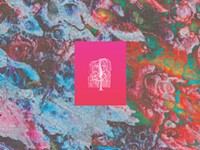
Album review: 'Honey from the Rock'
Aug 1, 2018 - More »
